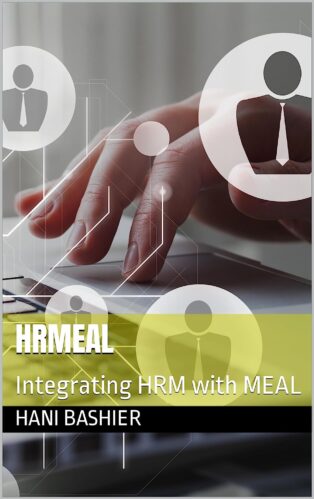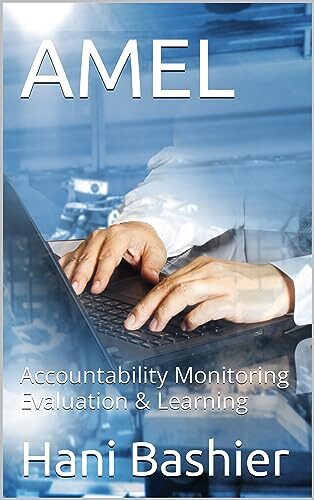Essential Practices for Implementing Monitoring, Evaluation, Accountability, and Learning (MEAL)
Implementing Monitoring, Evaluation, Accountability, and Learning (MEAL) systems is an essential practice for organizations working in the development and humanitarian sectors. MEAL systems provide valuable insights into project performance, support evidence-based decision-making, and promote accountability and learning. This comprehensive guide will outline the essential practices for implementing MEAL systems, covering key aspects such as stakeholder engagement, data collection and analysis, feedback mechanisms, capacity building, and more.
1. Develop a Clear MEAL Framework
A strong MEAL framework is the foundation of an effective MEAL system. The framework should outline the organization’s approach to monitoring, evaluation, accountability, and learning and provide a clear structure for data collection, analysis, and reporting.
Key Elements of a MEAL Framework:
- Define project goals and objectives: Clearly articulate the overall goals and objectives of the project or program, ensuring that they are specific, measurable, achievable, relevant, and time-bound (SMART).
- Identify indicators and targets: Develop a set of indicators and targets to measure progress towards project goals and objectives. These should be aligned with the organization’s overall strategy and be contextually appropriate.
- Establish a monitoring and evaluation plan: Develop a plan for monitoring project performance and evaluating its impact, outlining the data collection and analysis methods, timelines, and responsibilities.
- Develop a learning and adaptation strategy: Create a strategy for using MEAL data to inform decision-making, support organizational learning, and facilitate adaptive management.
2. Engage Stakeholders and Beneficiaries
Engaging stakeholders and beneficiaries in the design, implementation, and evaluation of MEAL systems is essential for ensuring that projects are relevant, effective, and accountable. Involving stakeholders and beneficiaries in the MEAL process promotes ownership and helps to ensure that their perspectives and needs are considered in decision-making.
Key Practices for Stakeholder and Beneficiary Engagement:
- Conduct participatory assessments: Involve stakeholders and beneficiaries in the assessment of project needs, priorities, and opportunities, ensuring that their perspectives are taken into account in project design and implementation.
- Facilitate two-way communication: Establish open channels of communication with stakeholders and beneficiaries, providing opportunities for feedback, consultation, and dialogue.
- Promote meaningful participation: Create opportunities for stakeholders and beneficiaries to engage in MEAL processes, including data collection, analysis, and decision-making.
- Strengthen capacity: Invest in capacity-building for stakeholders and beneficiaries, ensuring that they have the skills and knowledge required to effectively engage with the MEAL system.
3. Implement Robust Data Collection and Analysis
Data collection and analysis are at the heart of MEAL systems, providing critical insights into project performance and impact. Implementing robust data collection and analysis methods is essential for ensuring that MEAL data is accurate, reliable, and relevant.
Key Practices for Data Collection and Analysis:
- Select appropriate data collection methods: Choose data collection methods that are suited to the project context, objectives, and resource constraints. These may include quantitative methods (e.g., surveys) or qualitative methods (e.g., focus group discussions).
- Ensure data quality: Implement measures to ensure the quality and reliability of data collected through the MEAL system, including data validation, quality control, and data management processes.
- Analyze and interpret data: Analyze MEAL data to identify trends, patterns, and insights, using appropriate analytical techniques and tools. Interpret the findings in relation to project objectives, context, and stakeholder perspectives.
- Disaggregate data: Collect and analyze data disaggregated by gender, age, and other relevant factors to identify disparities and ensure that the needs of different groups are considered in decision-making.
4. Establish Feedback Mechanisms and Accountability Processes
Feedback mechanisms and accountability processes are essential components of MEAL systems, ensuring that organizations are responsive to stakeholder and beneficiary needs and concerns. These processes also promote transparency and trust, enhancing the credibility of the organization and its projects.
Key Practices for Feedback Mechanisms and Accountability Processes:
- Develop a feedback and complaints mechanism: Establish a system for stakeholders and beneficiaries to provide feedback, raise concerns, and submit complaints related to project activities or the MEAL system itself.
- Facilitate open and transparent communication: Provide regular, accessible, and transparent information on project progress, performance, and impact to stakeholders and beneficiaries.
- Respond and adapt: Use feedback and complaints data to inform decision-making, address concerns, and adapt project activities as needed.
- Ensure confidentiality and protection: Implement measures to protect the confidentiality of feedback and complaints data, ensuring that individuals who provide information are not at risk of harm or retribution.
5. Build Capacity and Support Organizational Learning
Building capacity and supporting organizational learning are essential practices for ensuring that MEAL systems are effective and sustainable. By investing in capacity-building and promoting a culture of learning, organizations can enhance their ability to adapt and respond to changing contexts and emerging challenges.
Key Practices for Capacity Building and Organizational Learning:
- Invest in staff training: Providetraining and capacity-building opportunities for staff involved in MEAL processes, ensuring that they have the skills and knowledge required to effectively implement and utilize the MEAL system.
- Foster a culture of learning: Encourage a learning-oriented organizational culture, where staff are encouraged to reflect on their experiences, share insights, and learn from successes and failures.
- Share knowledge and best practices: Establish mechanisms for knowledge sharing and learning, both within the organization and with external partners. This may include workshops, conferences, learning platforms, or other forums for exchanging information and insights.
- Document lessons learned: Systematically document lessons learned from project implementation and MEAL processes, and use this information to inform future project design, implementation, and evaluation.
6. Continuously Review and Adapt MEAL Systems
Effective MEAL systems are dynamic and adaptive, able to respond to changing contexts, emerging challenges, and new opportunities. Regularly reviewing and adapting MEAL systems is essential for ensuring that they remain relevant, effective, and aligned with organizational priorities.
Key Practices for Reviewing and Adapting MEAL Systems:
- Conduct regular MEAL system reviews: Periodically review the MEAL system, assessing its effectiveness in supporting project monitoring, evaluation, accountability, and learning. Identify areas for improvement and adjust the system as needed.
- Adapt to changing contexts: Recognize that organizational priorities, project objectives, and stakeholder needs may change over time. Be prepared to adapt the MEAL system to accommodate these shifts, ensuring that it remains relevant and effective.
- Monitor external trends and developments: Keep abreast of trends and developments in the monitoring and evaluation field, as well as the broader development and humanitarian sectors. Use this information to inform the design and implementation of MEAL systems and to support continuous improvement.
Conclusion
In conclusion, implementing effective Monitoring, Evaluation, Accountability, and Learning (MEAL) systems is essential for organizations working in the development and humanitarian sectors. By following these essential practices, organizations can enhance their ability to track project performance, evaluate impact, promote accountability, and support learning and adaptation. Ultimately, a well-designed and implemented MEAL system can contribute to more effective, efficient, and impactful projects, helping organizations to achieve their goals and improve the lives of the people they serve.







